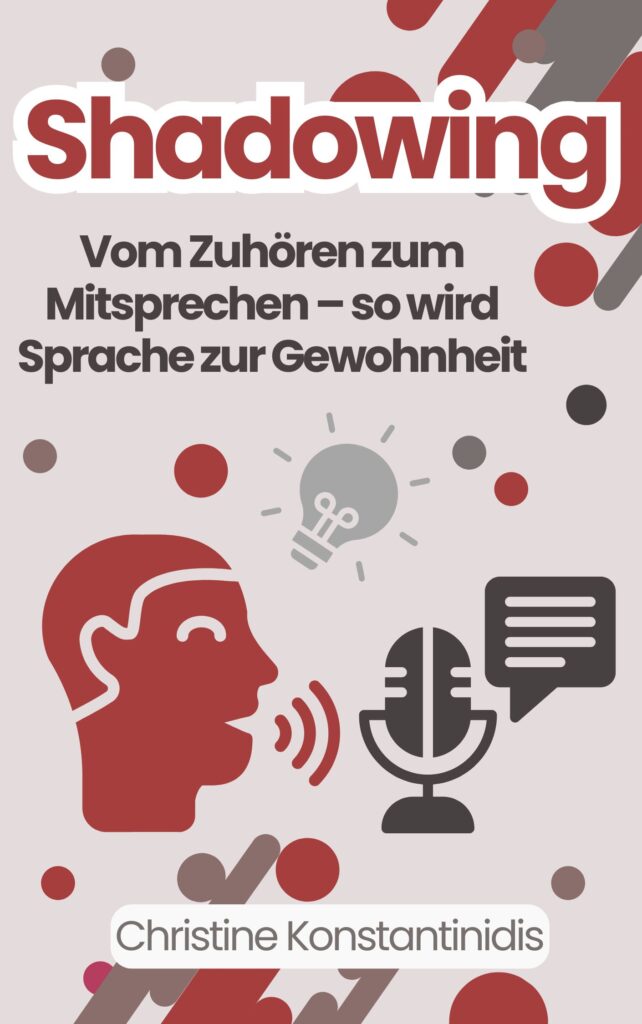
Auch heute gibt es wieder die Originalantworten in Englisch und Italienisch zur siebten Folge der Interviewserie auf meinem Blog und auf dem Blog von Sprachheld.de.
Die siebte Frage lautete:
How can you improve your listening skills?
Come migliori la tua comprensione orale?
Viel Spaß beim Lesen der Antworten. Die deutschen Übersetzungen findest du in den beiden oben verlinkten Artikeln.
Olly Richards
Listen, listen, listen (and read the transcript at the same time!)
Jane Eggers
By being with a group of native speakers, by listening to the radio or audiobooks, by watching TV or films with English subtitles on.
Guilherme Castro
You can watch lots of Youtube videos as I said before; you can listen to podcasts in your IPod or smartphone while you do jogging, wash the dishes, go to work and so on; you can see movies without subtitles, so you will be able to pay attention to what you are listening; you can listen to songs and read their lyrics; and more. In the globalized world today it is easy to get good audio content on your target language, so the secret here is simple: listen and listen. That way, your listening skills will grow great. A special technique I would recommend is to watch something without any subtitles first and then watch it again with subtitles in the target language, so you will be able to get the meaning of words you were not understanding just by listening. But always remember: you are not supposed to understand everything. Enjoy your learning and do not focus on researching every word. Some of them are not that useful for you to enjoy what you are doing (reading, listening etc).
Kirsty Major
There is so much audio content available on the internet now. Once you’ve reached a basic level, you can look for content about your interests and not just content for language learners. There are podcasts on any subject you can think of, as well as Youtube videos and audio books.
The three pieces of advice that I would give when using materials like this are:
- Choose something appropriate to your language level. You will feel really frustrated if you only understand one word in 20.
- Make sure you are really listening. Putting something on in the background and hoping that the information will make its way into your brain doesn’t work. You have to focus on the language and try to understand it. Don’t worry if you don’t understand every word but do your best to understand as much as possible.
- Don’t rely too heavily on subtitles. This is a listening exercise, not a reading exercise!
Giulia Novali
Ascoltando il più possibile persone madrelingua. In passato mi sono stati utili anche alcuni cd, dvd che riportano situazioni comunicative quotidiane.
Chiara Fortini
Utilizzo podcast e musica e talvolta quando devo cercare delle parole nuove sul vocabolario mi servo di un dizionario on line che mi faccia sentire anche la pronuncia.
Claudia Scaringi
Come ho già detto, familiarizzare coi suoni della lingua che si apprende è fondamentale fin dall’inizio. Vi dono un esempio dell’utilità di abbinare i suoni alle lettere e alle sillabe: se, ad esempio, state studiando l’italiano e sentite la parola „arzigogolato“ , se non l’avete mai incontrata prima ma siete in grado di scriverla perché sapete a quali lettere corrispondono quei suoni, potrete cercarla nel dizionario e quindi imparare una nuova parola. Anche la differenza fra parole che sembrano simili è molto importante, ad esempio ascoltare, e quindi imitare, la pronuncia di due parole come pena e penna vi aiuterà ad evitare qualche imbarazzo nelle vostre conversazioni. Per questo scopo la scelta è vastissima, potete ascoltare podcast e audiolibri ad esempio. Un’ottima tecnica, a mio avviso, è ascoltare una prima volta il podcast o l’audiolibro senza leggere il testo per vedere quanto e cosa si capisce e poi riascoltare una seconda volta, leggendo il testo, per verificare il livello di comprensione. Potete anche guardare film o serie televisive se avete un livello intermedio-avanzato, se invece avete un livello più basso, potete riguardare la vostra serie preferita nella lingua che state imparando. Sapere già la storia faciliterà l’esercizio e potrete concentrarvi solo sulle nuove parole senza sforzarvi di capire cosa succede tra i personaggi.
Das waren die Originalantworten zur siebten Interviewfrage. Die Antworten von Giulia, Chiara, Olly, Kirsty und Jane in deutscher Sprache findest du bei mir auf dem Blog, die Antworten von Claudia und Guilherme bei Sprachheld.de.
Herzliche Grüße
Christine





Schreibe einen Kommentar